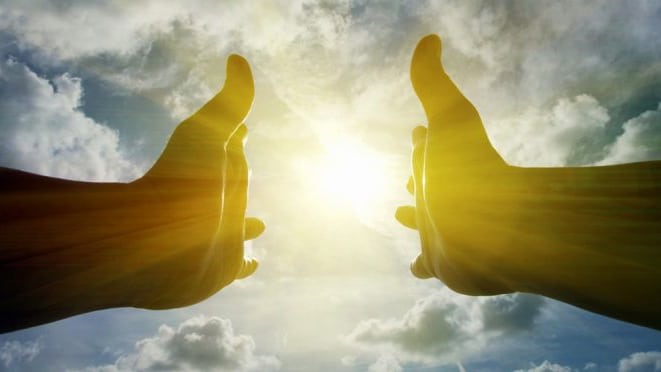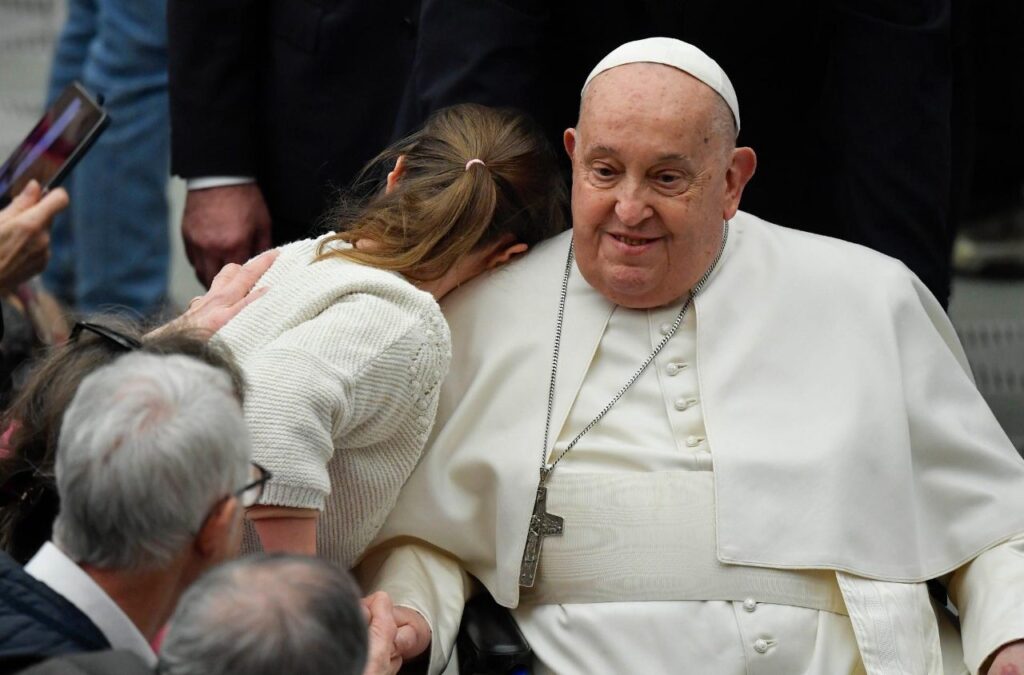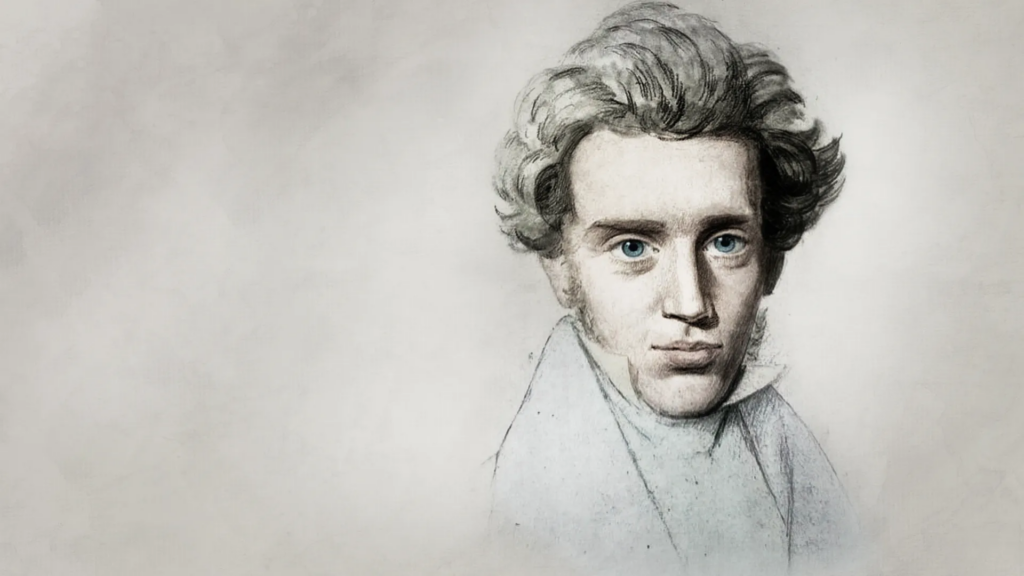Agenda 2033: eschatology and Christian hope
The path to divine destiny

What awaits the human being at the end of his earthly life? What awaits the world and the cosmos at the end of time? These questions have always arisen in the human heart. And Revelation responds to them with a clear and wonderful truth: a destiny awaits the human being, the world, and the cosmos in God. A consummation awaits them in the form of a very close, supernatural relationship with their Creator.
An eschatology to generate hope
These days I have reflected with some friends on the importance of disseminating what we have come to call Agenda 2033, understood as the authentic Agenda (in capital letters) to change the world, with Christ as head, as Javier Lozano explains to us in an article published in Mission Magazine.
In this article, Lozano extracts the most relevant ideas from Eduardo Granados’ book “Agenda 2033: new and eternal”, an ingenious response to the omnipresent Agenda 2030 that aims to eradicate Christian roots in our societies and be the authentic roadmap in the construction of the new global governance.
[https://www.religionenlibertad.com/opinion/191343834/agenda-2030-2033.html]
On the other hand, in the program “The coming world”, in conversation with Father Félix López SHM, we have been listing the characteristics of this divine Agenda that allows us to advance our human agendas in accordance with the redemptive plan of the Trinitarian God.
However, in this reflection, it was necessary to go further and contemplate the goal (telos) of the history of salvation understood as an intimate communion of creatures with the Creator.
And it is difficult for contemporary Catholics to delve into eschatology (éschaton = the ultimate), that is, the doctrine about the end of both individual life and the world. However, eschatology is nothing more than the attempt to reflect on this consoling truth about the final destiny of man and his environment. More precisely, it is the believing reflection about the mystery of consummation that God has reserved for humanity and the cosmos.
The mission of eschatology is to provide a light that allows us to transcend the ephemeral in order to contemplate, from God, the meaning of the march of history. From the perception of the goal prepared by God for creatures, an impulse will spring forth that serves to remain joyfully awake, awaiting the second coming of the Lord. Eschatology, in short, is called to provide a solid foundation so that men in history can live vigilantly and hopefully.
Therefore, with the intention of entering into the understanding of this final destiny, I recommend reading the book by Father J. José Alviar, professor at the Faculty of Theology of the University of Navarra, entitled “Eschatology”, a manual where they are considered the ultimate mysteries from a personalistic and relational perspective.
In the book the mysteries of the parousia, eternal life and reprobation are considered as integral parts of a great divine-human drama. God approaches creatures with the desire to unite them with Him in intimate communion, respectful of the freedom of the creature, who responds Yes or No to the divine offer.
Next, and in a very synthetic way, we will state seven aspects discussed in said manual by J. José Alviar, and that can help us understand the story of salvation, which vigorously nourishes our hope as Christians.
- Consummated and inchoate eschatology: the destiny in God of man and the world.
- The Parousia as God’s approach to men in the history of salvation.
- The Kingdom of God as a mystery of communion between the Trinity and humanity.
- The resurrection of the dead as human plenitude and hope of life.
- The new heavens and earth as regeneration of the world and the cosmos in Christ.
- The universal Judgment as primacy of salvation over damnation.
- Divine vision and communion with God as the core of eternal life
Consummated and inchoate eschatology: the destiny in God of man and the world
The Christian has a living awareness of the dynamic character of reality. Instructed by Revelation, he perceives the events of the world – from creation to consummation – as scenes that make up a drama, an unfolding story.
The believer sees life as a pilgrimage towards a destination. He knows that his journey has a direction, because Someone governs him: God, who is Love.
Thus, the Christian, imbued with confidence in a divine project, has an optimistic vision of reality: a hopeful vision, which understands history as a history of salvation, that is, directed towards a way of existing that surpasses the current imperfect way. .
The believer’s gaze does not stop at the surface – only in the physical, social, political, etc. aspects. of history – but it penetrates to the depths, to the ultimate meaning of things in God. With supernatural insight, he perceives the why, where, and by whom of the world and history.
As Alviar points out, “Christian eschatology is, ultimately, a careful look at the final part or climax of saving history, of the divine project for man and the world. It is a believing meditation, amazed and admired, of the extremes to which God’s Love reaches for creatures. It is also practical reflection, which moves the Christian to support, without losing pace, the saving project. In short, it is saving science, which provides meaning, value and impulse to the life of the believer on earth.”
As J. José Alviar tells us, we can contemplate the consummation of God’s project for creation in general. In this global picture we can see the central place that Jesus Christ occupies. As head of the new humanity, Jesus incorporates men into his own personal and vital mystery, giving them entry into the interior of the Trinity as adopted children. And as Firstborn of the new world, he drags the entire cosmos toward total renewal.
The Parousia as God’s approach to men in the history of salvation
The term Parousia is used specifically in Christian language to express the glorious coming of Jesus Christ at the end of history.
The revelation of a God who draws near to men is the surprising counterpoint to the biblical teaching on divine transcendence.
Theology, as Alviar tells us, is called to recover a vision of the Parousia as the mystery of a God who lovingly seeks an encounter with men.
“There is no other explanation for the wonderful divine initiative of approaching creatures, but Love. Because God is Love (cf. 1 Jn 4:8), he has infinite openness and generosity, which are manifested in history with a “ approach dynamics”. God “inclines” toward men; or in Trinitarian terms, the Father sends the Son and the Holy Spirit to humanity, to draw it to Himself.”
The only valid response of man, in the face of this God_Love, can only also be love. To “encounter” God in the deepest sense, to form a true Alliance with Him, it is necessary to love Him.
Love creates a unique attitude in the Christian: it turns him into a being who longs for the face of God.
More than a fear or concern for the last day, the affectionate desire to hold firmly to Jesus Christ and penetrate into his Sacred Heart should prevail in the heart of the believer.
The Kingdom of God as a mystery of communion between the Trinity and humanity
The approach of God that culminates in the Parousia implies his understanding with creatures, to build a mystery of communion.
The Christian refers to this mystery of the final goal of the history of salvation when he uses the word Kingdom.
As J. José Alviar shows us, “Christ, as divine Son made man, constitutes the core of the Kingdom as a divine-human articulation. And it reveals its intimate structure, consisting not of the mere subject-sovereign relationship, but of the son-Father family relationship. Christ also invites men to unite with his Person, to form with Him a “body” animated by the Spirit and loved by the Father. This structure of salvation assimilates all men who wish to enter, and thus grows in history towards its full stage, in the eschaton.
This relational and interpersonal reality constitutes the very essence of the Kingdom/Family that points to a final mystery of divine-human communion.
“Christ has become what we are to give us the possibility of being what He is” (Saint Irenaeus, Adversus haereses, V. praef.).
For Aviar, “the telos of history is this: a filial humanity, the work of the Holy Spirit, extension to men of the filiation of the Son.”
In this sense: “The final Kingdom is, supportive and corporate: a human group united to its divine-human head through the action of the Holy Spirit, this group remaining immersed in a filial relationship with the Father. The eschaton can be defined as a mystery of the formation of a family consortium between the Trinity and men.
In this way, as stated in the document Gaudium et Spes, the efforts and constructions of man, aimed at producing in history a dawning of the eschatological world, will be somehow perfected and purified in eternity. Certainly, we do not know exactly which elements, and in what way, will remain beyond history, what we do know is that there will be a mysterious substantial extension of our world in the eschaton.
Finally, Alviar makes us see in his book, how in the face of the reductionism of trying to establish an earthly kingdom – an enterprise based on the overly optimistic vision of man and his capabilities and the innate energies of the world -, the Christian is aware of the radical insufficiency of human possibilities to achieve integral salvation.
Thus, “God’s project for man is much more ambitious than providing material well-being, or political, economic and cultural liberation, social justice and solidarity. The divine plan encompasses and reaches even the most hidden places of the human being, seeking the transformation of the heart and granting holiness. It is the fullness of holiness and charity, the work of grace, the only possible foundation of perfect peace and harmony among men. Ultimately, it is the transformation of human beings into children of God that will cement the consummate solidarity of the future eon.”
The resurrection of the dead as human plenitude and hope of life
Here it is about meditating on the way in which the approach, presence and penetration of God has a transfiguring effect on creatures: in the just, the glorious resurrection; in its cosmic environment, the renewal in new heavens and new earth.
The Catechism of the Catholic Church says the following: “In the resurrection God will restore incorruptible life to our transformed body, reuniting it with our soul. Just as Christ has risen and lives forever, all of us will be resurrected on the last day” (no. 1016).
The resurrection on the final day will only give definitive shape to our two-dimensional human existence (body-soul). On that day, divine power will transfigure every corner of human ontology.
The new heavens and earth as regeneration of the world and the cosmos in Christ
It is a firm belief of Christians that the dynamic approach of God, which permeates the entire history of salvation, will ultimately affect not only men, but their cosmic environment. This will be purified, renewed, transfigured by the presence of God.
As J. José Alviar argues, “this point of faith points to the deep solidarity between human creatures and inferior creatures: the two parts constitute, deep down, a unity, so that man does not exist without a cosmic environment, and the material universe has in man its most sublime point of contact with God. It is, therefore, a global unity that will be saved, elevated, transformed by God.”
Within this logic of solidarity, it is to be expected that the world will experience a final transformation, which runs parallel to the eschatological glorification of human beings.
Following the creational doctrine of the original goodness of the world, Christian thinkers develop a conception of “new heavens and earth” that maintains a relationship of continuity/discontinuity with the current world. In this sense, we expect an eschatological universe that will be the result not of an annihilating divine action, but of a purifying and transfiguring one. At that moment God will truly be “all in all.”
Universal Judgment as primacy of salvation over damnation
In the Creed, Christians profess that Jesus Christ “will come again… to judge the living and the dead.” With this we affirm that God weighs the moral value of each free creature, so that at the end of history all men without exception will be clearly segregated into two fundamental groups: those who are in communion with Him, and those who are forever away. of the.
Tradition delves into the two aspects of this mystery: the theological (insofar as judgment means the assignment by God of a perfect retribution to each creature) and the anthropological (insofar as, as a final result, it leaves in the universe human being a clear division, between the blessed and the lost).
The final mystery contains a discriminatory dimension (between the wheat and the tares, between the sheep and the goats). In other words, God’s approach to his creation will ultimately cause a differentiation among free creatures. An irreversible division between the saved and the damned, between lovers of God and lovers of themselves.
The Last Judgment, insofar as this separation implies, constitutes a revelation of the real value of the life and work of individuals, communities, or institutions in history. It shows, in short, the agreement or discordance of each human desire with divine designs.
The mystery of the Judgment is closely related to the Truth. We are told that in the end there will be a perfect unveiling of the drama of salvation. Then, each person’s behavior and the secret of their hearts will be brought to light.
Each person’s admission to eternal life will depend on whether he or she has gone to meet Jesus and established a vital connection with Him.
As J. José Alviar points out, “Christ will be not only the Judge, but also the criterion of Judgment. He will be the living standard by which all human existence will be measured, the mirror in which each man will look at his face: have I come to sufficiently identify myself with Him, or not? Does His holy Spirit fully inhabit me, or not? Can your heavenly Father recognize me as a beloved son, or not? The ultimate question that each person will face is, therefore, Christological (or, if you will, Trinitarian): whether he or she has become sufficiently one with Christ to be admitted with Him and in Him, to the intimate consortium of the Trinity.
Divine vision and communion with God as the core of eternal life
“I believe… in eternal life”; “I hope… for the life of the future world.” With these words we try to express the goal of hope for every human being. In reality, with such terms we intend to say a lot (in a certain sense, everything): union with God and the Saints, the fullness of bodily and spiritual existence, an experience of joy and peace… that await the righteous at the end. of history.
From the relational perspective, it is possible to better attend to the loving message that lies beneath the revelation about eternal life. At the core of the mystery we find a living and breathing reality: God, Father, Son and Holy Spirit, who open the doors of their intimacy to creatures.
The mystery of blessed communion with God and with all who are in Christ surpasses all understanding and all representation.
Father J. José Alviar sums it up wonderfully: “Eternal life consists of staying inside of God, of establishing a permanent relationship with the Three Divine Persons. The familiar character of such Life demands, by its very nature, a prior adaptation of the creature. In other words: loving dialogue requires a prepared interlocutor, made in some way connatural with the Trinity. Who can be eternally contemplating the Father, but someone who has learned to love him already in this life as a son? Who can enjoy the constant breath of the Spirit, except someone who has already come to understand Him and follow His most subtle movements? “Who can enjoy the vital union with Christ-head, except someone who has already formed within himself the same feelings as Jesus?”
Earthly existence then appears as a time granted by God to man to prepare for his definitive admission to the divine supernatural environment.
Meditation on eternal life must, therefore, urge holiness, make haste to love. As we become more fit (worthy, ever) for Heaven, we begin to taste something of blessedness.
As Saint Josemaría Escrivá said: “every day I am more convinced: the happiness of Heaven is for those who know how to be happy on earth.”
Conclusion
Catholics have our own agenda: that of Christ and his Church. We want to call it Agenda 2033, a divine project two millennia old since the Redemption, which turns out to be constantly new and eternal.
Agenda 2033 is not the world’s agenda. Jesus Christ 2000 years ago presented it to us in the Sermon on the Mount and it was summarized in the Beatitudes, an authentic ethical and moral code for all of humanity.
In these times of tribulation and uncertainty, as Eduardo Granados points out in his book, it is good to renew the path that the disciples took from the year 30 in which they met Jesus and reach the year 33, where they welcomed him in his fullness. .
In this way, it is good to contemplate the mysteries that eschatology shows us to give meaning to our human agenda, to our life on earth, sanctifying ourselves, and putting eternal life as our final goal.
Related

Reversing Social Deterioration: A Task That Begins in Business Management
Alejandro Fontana
25 April, 2025
4 min

The Revolution of Tenderness
María Elizabeth de los Ríos
25 April, 2025
3 min

His Hope Does Not Die!
Mario J. Paredes
24 April, 2025
6 min

The Religious Writer with a Fighting Heart
Francisco Bobadilla
24 April, 2025
4 min
 (EN)
(EN)
 (ES)
(ES)
 (IT)
(IT)

